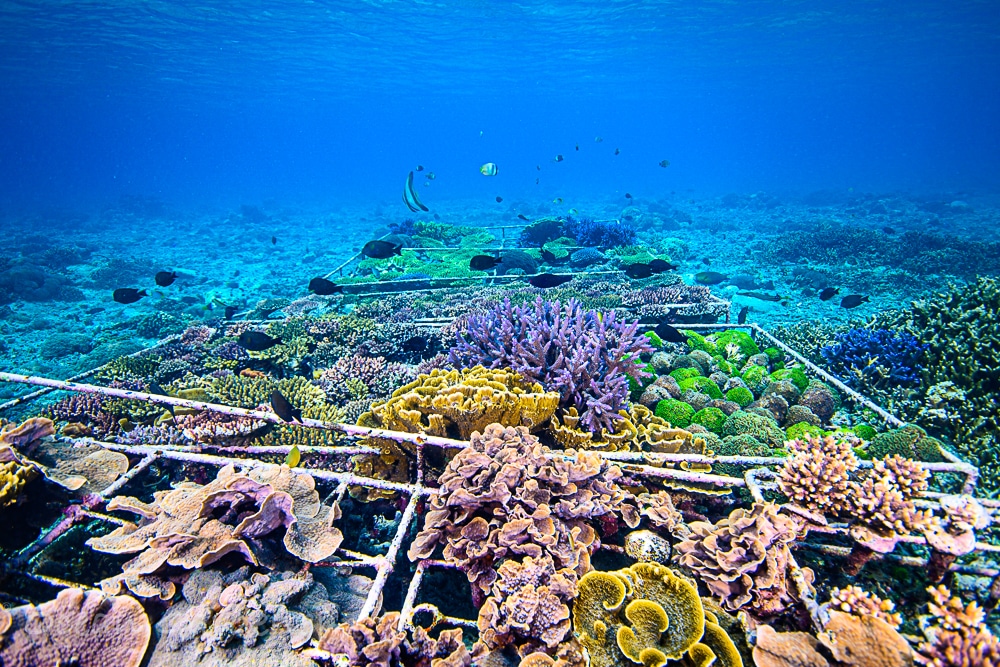We’ve seen few publications mentioning that the outcome of coral reef restoration remains elusive and may even be counter-productive. And the obvious answer to that particular question is ‘No coral reef restoration is not going to replant or restore all the world’s coral reefs’. If we don’t solve the causes of reef degradation, we won’t save anything. At best we will save a bit of time! The solution can only be political, and the world’s greed is the only cause of coral reef degradation.

Reducing greenhouse gas emissions and other drivers of reef degradation is the ONLY solution.
Reef Restoration is still in its infancy stage:

It’s a work in progress. We’ve been working on reef restoration for only 30-40 years. it started in the Caribbean with only a handful of species. And slowly we see the same trends gaining momentum in all other oceans of the world. It’s a completely new industry. But we can expect as time passes, and the industry grows, the methodology will improve and new techniques will be constantly added.
Many New Techniques are popping out regularly:

Even though there are many different techniques that can be used in Reef Restoration, most projects only focus on one. Unfortunately, there are no techniques that work with all species of corals or with all different habitats. Only a multi-technique can effectively work. Combining sexual with asexual, while trying to improve natural restoration and resilience at the same time is the key.
Focus on a broad range of species:

One of the highlights of the recommendations is to ‘identify a broader suite of species with a diversity of traits and life histories that could continue to perform key ecological functions’. That’s why working with the broadest range of species and technique is key to success in reef restoration. It’s not because many reef restoration projects failed, that all failed! Let’s learn about the successful one, not condemn a practise on some few failures.

The publication still highlights some positive aspects such as improving stewardship and education. But we understand that the risk is also that coral reef restoration gives the false sense that no matter how much CO2 we pump into the atmosphere, we will be able to fix coral reefs. That is an absolute lie and coral reef restoration will never fix all our flaws. but doing nothing to help coral reefs, will not fix anything neither!
Publication: https://www.cell.com/one-earth/pdf/S2590-3322(23)00189-6.pdf